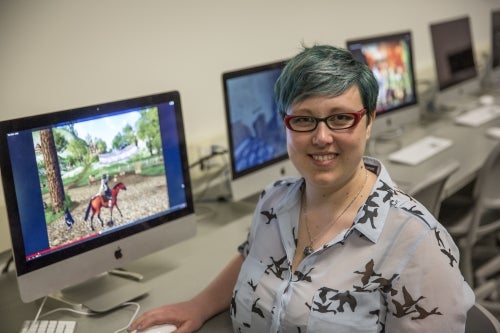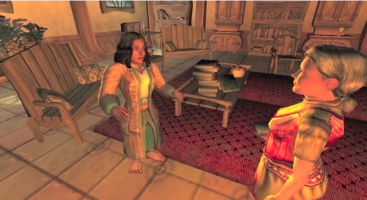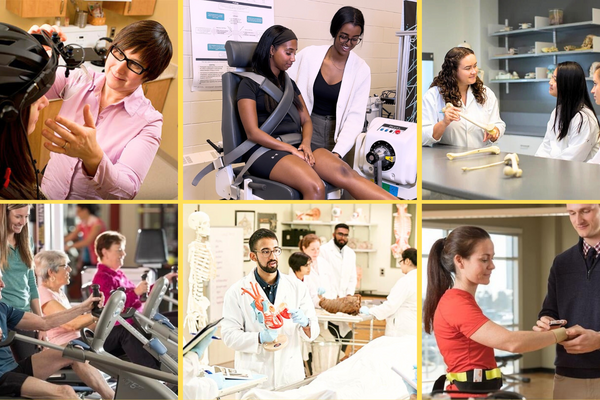
Rewriting the story of women in gaming: Can Frodo be a woman?
Waterloo researchers establish GI Janes group to raise profile of women in gaming

Waterloo researchers establish GI Janes group to raise profile of women in gaming
By Megan Scarborough Faculty of Arts
When Elise Vist entered the gaming world she felt she had to prove herself not just as a gamer - but as a woman in gaming.
So when she arrived at the University of Waterloo to pursue doctoral studies, she co-founded GI Janes, a Games Institute group designed to raise the profile of women in gaming.
“I wanted a space to talk about what it felt like to be a woman who plays games,” says Vist, a PhD student in the Department of English Language and Literature, who co-founded the group with researchers, Emma Vossen and Judy Ehrentraut
Last semester, the group hosted a number of game nights with an emphasis on teaching women how to play and create games. They hope to expand their offerings to include more workshops for women in gaming. The GI Janes website is also used to talk about games from a female perspective.
The researchers were inspired after taking a class on adaptations of Lord of the Rings. The series didn’t resonate with them so they created a machinima – a short film recorded inside of a video game – entitled Lady Hobbits.
They created female characters in Lord of the Rings Online and reenacted the first four chapters of The Fellowship of the Ring. “We wanted to show that you can change the gender of the main characters and still be true to the text without reinforcing stereotypes,” said Vist. “Being able to rewrite the story for ourselves created a sense of empowerment as women.” With Frodo and Sam portrayed as women, the two felt a stronger attachment to the narrative, says Vist.

Lord of the Rings characters Frodo and Sam re-imagined as women in Lady Hobbits.
Although academics and scholars have identified the problem, the conversation hasn’t gained traction in the gaming community, says Vist. “Scholars in the field are looking for solutions but the conversations outside of academia are still largely about identifying whether there is a problem.”
As a second year PhD student, Vist’s research focus has shifted to the world of fan studies. She is looking at how fan fiction writers position themselves in opposition to dominant forces in the literary world. Many parallels can be drawn between this and her work with the GI Janes: many women gamers and developers frequently have to carve out and defend spaces for themselves, much as fans do.
Vist says she will continue to work to carve out a space for women in a culture that is still dominated by men. “The GI Janes are more about activism than research,” says Vist. “It is important that we remain an on-the-ground organization.”

Read more
A Waterloo couple reflects on the campus that shaped their careers, their values, and their love story

Read more
To meet our AI ambitions, we’ll need to lean upon Canada’s unique strengths

Read more
From optometry and pharmacy to public health and therapeutics, Waterloo alumni are powering Canada’s health care sector
The University of Waterloo acknowledges that much of our work takes place on the traditional territory of the Neutral, Anishinaabeg, and Haudenosaunee peoples. Our main campus is situated on the Haldimand Tract, the land granted to the Six Nations that includes six miles on each side of the Grand River. Our active work toward reconciliation takes place across our campuses through research, learning, teaching, and community building, and is co-ordinated within the Office of Indigenous Relations.